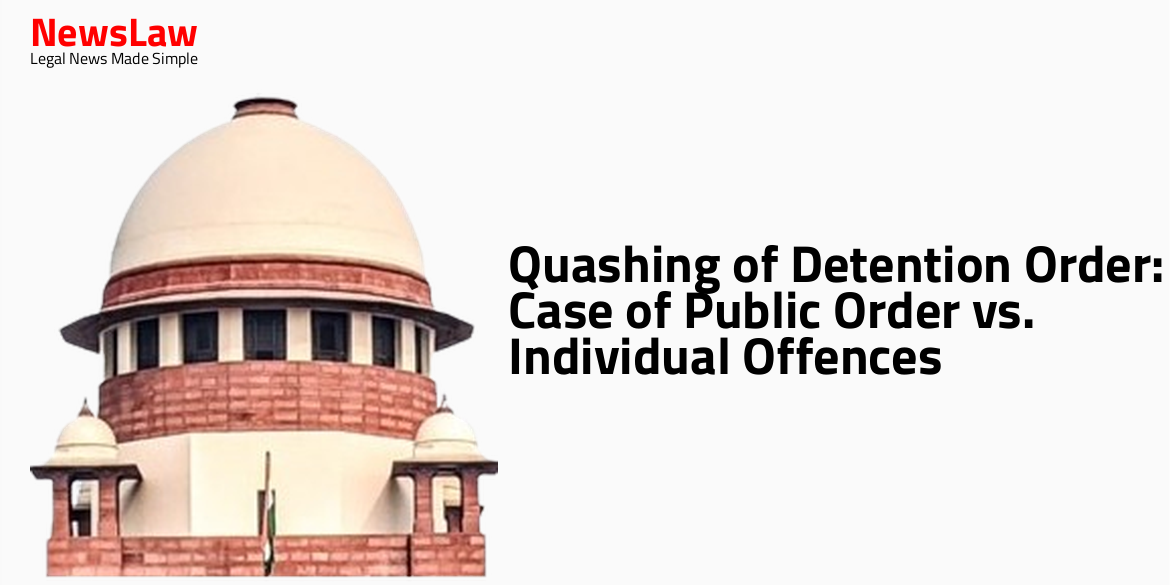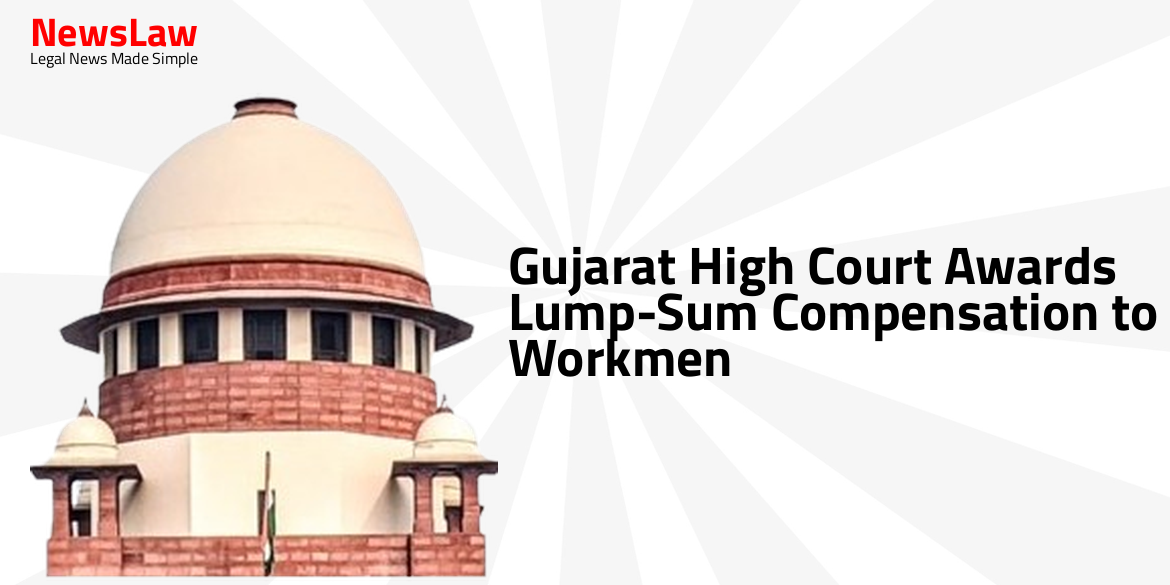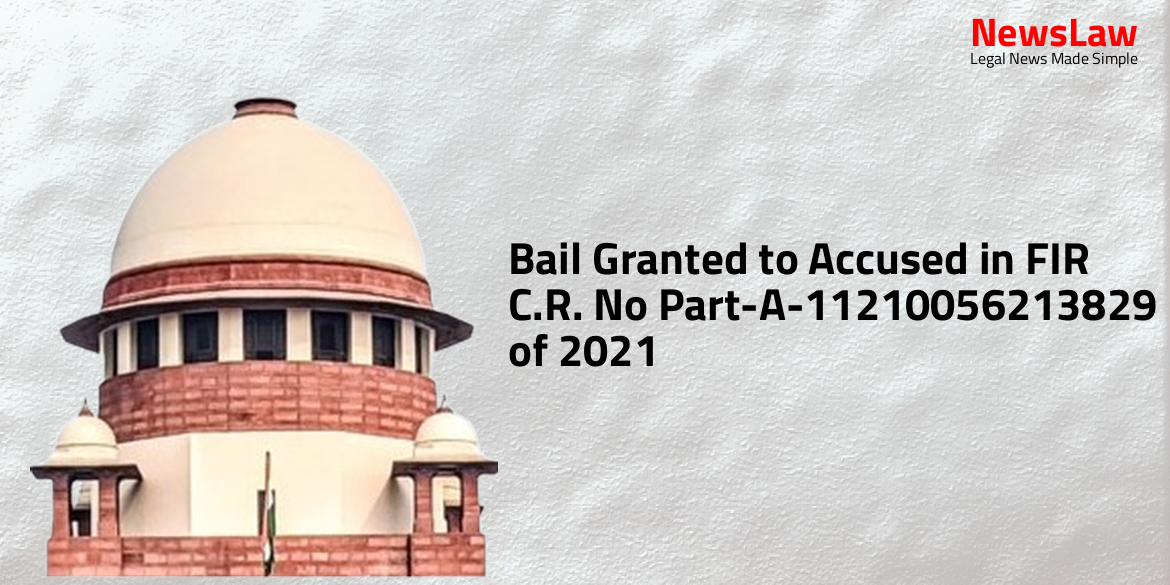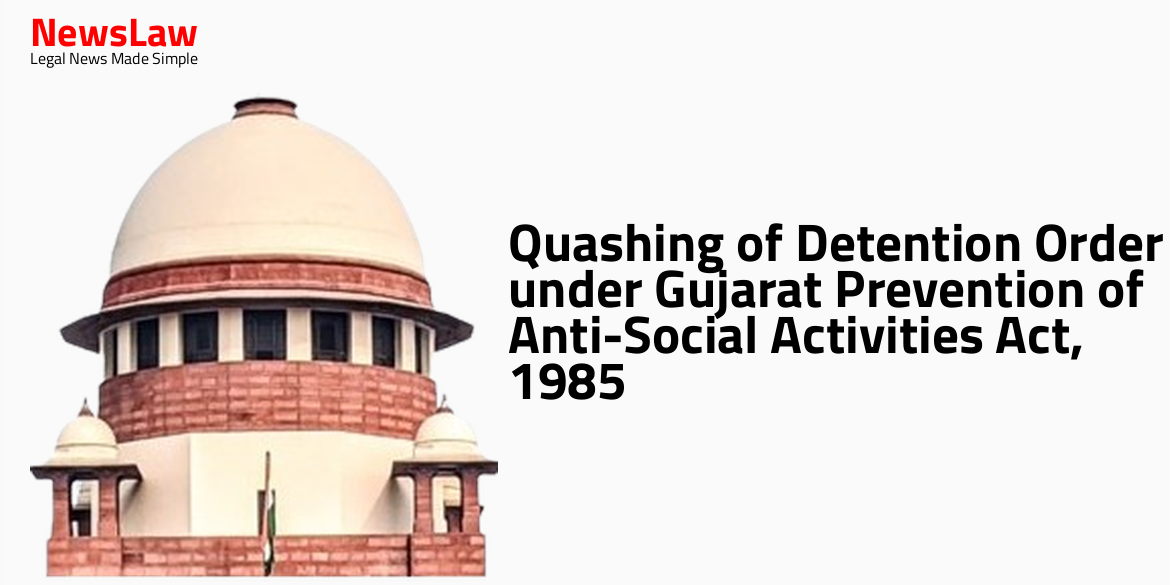In a significant development, the Gujarat High Court has quashed the detention order dated 05.12.2023, highlighting the distinction between ‘public order’ and individual offences. The case delves into the balance between preventive detention and protecting individual liberties. Stay tuned for more insights on this case of Public Order vs. Individual Offences.
Facts
- The petitioner has filed a petition to quash and set aside the order of detention dated 05.12.2023 passed by the Commissioner of Police, Surat City under the PASA Act.
- The grounds for detention are based on the petitioner’s alleged involvement in two theft offences registered with Pandesara Police Station.
- The petitioner has been released on bail by the competent Court in connection with both offences.
- The petitioner’s advocate has argued for quashing the detention order and setting the petitioner at liberty.
Issue
- The issue in this case revolves around whether the actions of the government are in accordance with the Constitution of India.
- The interpretation of specific provisions of the Constitution is a key point of contention.
- The question of whether the orders made by the government are within the legal framework is central to the case.
- The case requires a deep analysis of the constitutional principles and their application in the present scenario.
Arguments
- Learned AGP strongly objected to the grant of petition, stating that the activities of the petitioner would lead to disturbance of public order.
- The detaining authority has failed to substantiate that the alleged anti-social activities of the detenue adversely affect or are likely to affect the maintenance of ‘public order’.
- Merely because two cases of theft have been registered against the detenue, that by itself, does not have any bearing on the maintenance of ‘public order’.
Analysis
- Acts of assault or injury to specific persons do not always lead to public disorder.
- Quarrels and fights between two individuals do not necessarily disturb public order.
- Reference to the case of Pushker Mukherjee v/s. State of West Bengal highlights the distinction between ‘law and order’ and ‘public order’.
- Contravention of a law affects order, but for it to impact public order, it must affect the community or the public at large.
- The recent decision in the case of Shaik Nazeen v/s. State of Telangana emphasizes that seeking shelter under preventive detention may not be the appropriate remedy in cases where there is no nexus with the breach of maintenance of public order.
- Registration of FIRs alone does not establish a connection with the breach of ‘public order’, and there is a lack of relevant material to invoke power under section 3(2) of the Act.
- Drawing a line between serious/aggravated disorder affecting the community and minor breaches of peace primarily impacting specific individuals.
- Serious disorder directly affecting the community or injuring the public interest falls under preventive detention, not minor disturbances.
- Authority must have subjective satisfaction before passing a detention order.
- Detention order passed one day after the petitioner’s release on bail in connection with a second FIR.
- Cancellation of bail was a less drastic remedy available
- Order of detention was passed without resorting to cancellation of bail
- The order of detention was directly issued instead of exploring other alternatives
Decision
- The order of detention dated 05.12.2023 has been quashed and set aside.
- The detenue is ordered to be set at liberty forthwith, unless required in connection with any other case.
- The Rule is made absolute, and direct service is permitted.
- The impugned order of detention is deemed vitiated and the petition has succeeded, being allowed.
Case Title: DEEP GIRISHBHAI PATEL THROUGH REKHABEN GIRISHBHAI PATEL Vs. STATE OF GUJARAT
Case Number: R/SCA/7215/2024



